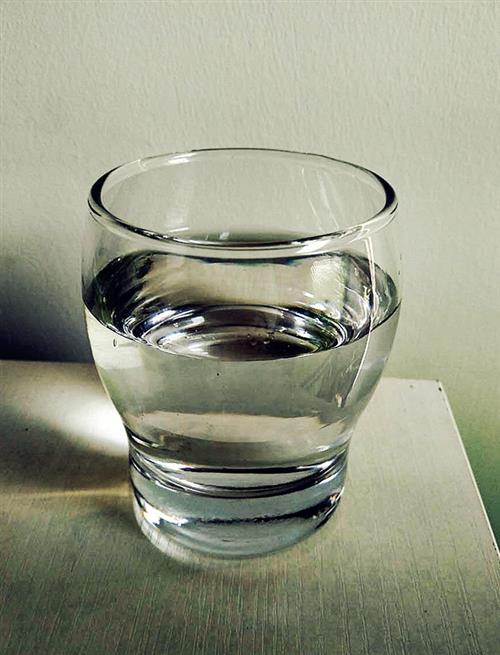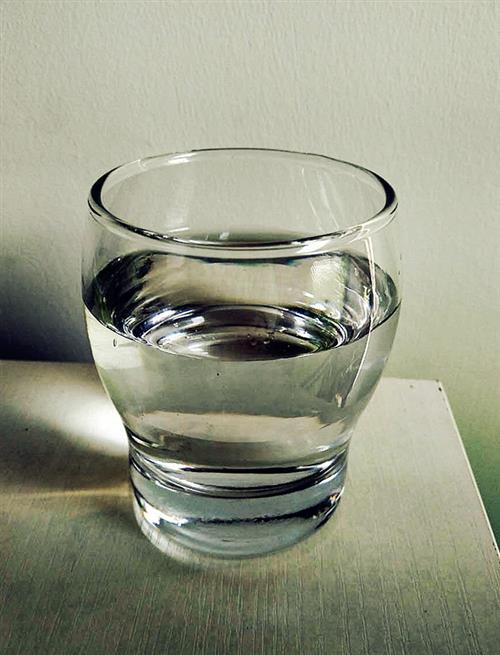17 signals prompt you to drink
Fortunately, there is a very precise dry alarm device in our body. This device can remind us of drought conditions through various symptoms, but we do not understand these signals.
1, no reason to feel tired
The process of making energy in the human body cannot leave moisture. Water is the central controller that regulates the permeation balance of mineral ion pumps. Energy is the pump that runs in water, sending potassium into the cell and sending sodium out of the cell. When water activates the pump protein, sodium and potassium attach to the pump protein and act as "generator magnets". This is the same principle as the hydroelectric power plant.
If you want to carry out this process smoothly, the cells need to have 75% of water inside. Only in this way, the water that passes through the cell membrane can run the pump, through this process to complete the exchange of sodium and potassium and other substances.
The body cannot store water. The water we drink is used for many purposes such as digestion, absorption, energy production, and removal of waste. The rest of the water is excreted through urine. Therefore, people don't often drink water, and their bodies do not have enough water to make energy. People can only feel tired.

2. Feel irritated, anxious and depressed for no reason
Feelings of upset or anxiety, depression, etc. are signals that the prefrontal lobe tells us that there is insufficient water in our own active area.
When there is a lack of water in the body, due to the inability to produce sufficient urine, the body can only divert some of the core substances as antioxidants to deal with toxic waste generated during metabolic processes. These core substances include tryptophan, an essential amino acid for animal growth, and tyrosine, an essential amino acid for metabolism. Both of these substances are used as antioxidants to neutralize hepatotoxic waste.
In addition, tryptophan is the raw material for the production of serotonin, melatonin, tryptamine, and guanamine, the neurotransmitters needed to maintain and integrate the balance of bodily functions. Therefore, when there is a lack of water in the body, it will continue to consume part of the essential amino acids for metabolism, making people feel weak.
Emotional depression indicates that the body's dryness has intensified. When the body lacks tyrosine, people can develop depression. Tyrosine is an amino acid that is used by the brain to make neurotransmitters such as epinephrine and norepinephrine and dopamine. If tyrosine is diverted to relieve toxins in the body, the activity of neurotransmitters will be reduced, people will lose their vitality, and emotions will become melancholic.
If you feel irritated or melancholic, please slowly drink two or three glasses of water. This will soon be able to calm down, and restore normal peace of mind.
3, indigestion
After food enters the mouth, digestive enzymes in saliva soften the food during chewing. When food passes through the esophagus, stomach and small intestine, carbohydrates are broken down into glucose, proteins are broken down into amino acids, fats are broken down into small fatty acids, and vitamins and minerals are also dissolved in water and become easily absorbed by the body.
The lack of water in the body leads to the accumulation of rubbish in the body. Our body will deal with the rubbish like the disease, and use all the energy to remove the rubbish from the body instead of performing the daily cell regeneration work. Therefore, the lack of water will cause many body organs, especially the digestive organs and the lymphatic system, kidneys, etc. to lose their normal vitality. In particular, the digestive process that always requires water from the beginning to the end is more likely to be affected.
The process of dissolving, crushing, and dispersing food in water is called hydrolysis. It is also water that sends these decomposed nutrients to cells. And the process of converting absorbed nutrients into energy also requires water. So when the body is dry, digestion will naturally be affected.
Conversely, excessive intake of water can also affect digestion. Drinking water immediately before or immediately after a meal will dilute the digestive juice in the stomach, which may lead to stomach discomfort. Drinking water during meals will promote absorption of sugar and lead to obesity. Therefore, the habit of eating rice soup or eating soup is not good for your health. It is best to drink water within 0.5 to 1 hour before or after meals.

4. Constipation
After ingesting food, the nutrients in the food are absorbed by the body, and the remaining residue is slowly compressed and moved to the large intestine. The food residue is slowly compressed and moved to the large intestine. The water acts as a lubricant, in other words, it softens and facilitates excretion.
To prevent the body from drying out, the last section of the small intestine and the large intestine are good at absorbing moisture. If there is not enough water in the body, the stool will become hard and round when passing through the small intestine and large intestine. And lack of lubricant, its movement speed will become slow. Constipation occurs.
If the stools stay in the body for too long, harmful gases such as carbon dioxide and methane in the stool will be absorbed by the body, leading to headaches, nausea, indigestion, loss of appetite and other problems. The longer the stool stays in the intestine, the longer it takes for cancer-causing substances and body rubbish to come into contact with the large intestine. If the large intestine is often in contact with carcinogens for a prolonged period, the large intestine cells are prone to mutations, resulting in large intestine polyps or colonic diverticula, and even severe colon cancer.
People eat dietary fiber in order to improve constipation. However, if you do not drink water and eat dietary fiber, stool will only become harder and harder, which will exacerbate constipation. While taking dietary fiber, you should also pay attention to drinking water.
While drinking water, eat more soft fibers that are good at absorbing water. This is the most natural and easy way to resolve constipation. However, crude fiber may cause indigestion.